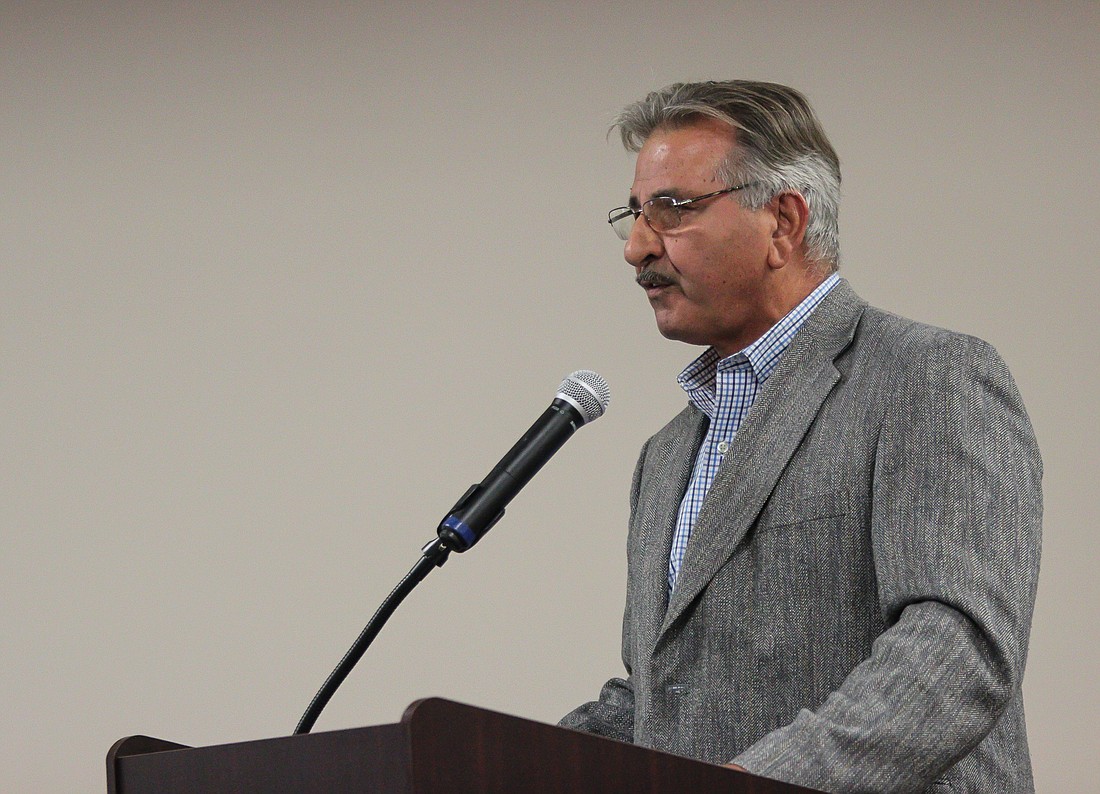- January 21, 2025
-
-
Loading

Loading

Members of the Public Safety Coordinating Council met on the morning of Wednesday, June 12, at the Flagler County Emergency Operations Center to listen to presentations from concerned groups around the community, including on the opioid crisis, homelessness and suicide. Here's what was said:
Charles Silano, the pastor of Grace Tabernacle Ministries and the leader of the Flagler County Opioid Task Force, presented the progress and goals of the task force, which was formed a little over a year ago. The task force has a number of committees, which have been meeting once per month.
Silano said he hopes to model itself after Georgia’s statewide opioid task force by having a specific description of what it is Flagler’s task force does and what resources are available to the community. He wants to promote more prevention (which ties into educating the community) and intervention.
“We’re ahead of some counties, but we’re behind others, as well,” Silano said.
He used this scenario as an example: If someone overdoses in Flagler County, he or she is taken to a hospital, treated and then released back onto the street with no counseling.
Counties in other states are opening clinics to talk to addicts after-care to introduce them to the concept of recovery.
“That’s a perfect time for us to be able to talk to that person for a couple of hours,” Silano said.
The solution isn’t a one-fix approach, however.
In the long term, there’s creating infrastructure, like a detox center. In the short term, the task force can present issues, ideas, programs, trends and so on to the public safety coordinating council on a monthly basis.
“Unless we address it here at a local level, drugs will always be coming,” Silano said. “We’re the ones who have to car. We’re the ones who have to educate. This is a drug war.”
Flagler Cares Executive Director Carrie Baird gave an update on the work of the Flagler County Housing and Homelessness Task Force, which, according to Baird, has been having great attendance at its monthly meetings.
She said that the county needs an expansive and complete coordinated entry system.
“Coordinated entry is really the only way that individuals experiencing homelessness can access state and federal funding for services and resources," she said.
It's a requirement of the U.S. Department of Housing and Urban Development to have one. The county's is fairly new but not as expansive as it needs to be. Instead of being used by only people whose job is to reach out to homeless people, it should encompass other areas of the community, including hospitals, jails, clinics, the Department of Health, churches and more.
“Anyone who could potentially serve an individual who is experiencing homelessness so that we can, as quickly as possible, assess them, get them into the data system, prioritize them based on their needs and then get them to services," Baird said.
Jill Crawford, a mental health advocate and former patient of the Flagler Mental Health Center, advised that the county needs to legislate a way for those in mental health crises to seek “fast, medical, medicinal mental health treatment.”
Flagler County had the highest suicide rate per capita of any county in the state of Florida in 2017, and has been among the highest in the state for years. Meanwhile, it has consistently ranked near the bottom statewide in terms of availability of mental healthcare providers, particularly for patients on Medicaid.
“The needs of the people are not being met.”
Sue Urban, whose son died by suicide in 2018, spoke during public comments.
“We’re not getting enough resources here in Flagler County,” she said. “We need to do something now. We need to work harder so people know what’s going on.”